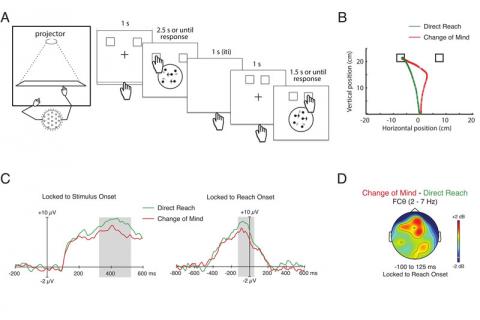To date, the neural mechanisms underlying changes of mind in decision-making processes have only been described in non-human primates. These studies focus exclusively on the role of perceptual evidence accumulation to explain such changes of mind. However, they ignore how widely distributed perceptual and cognitive networks are interconnected with the sensorimotor network to deliver rapid and flexible adjustments to decisions and modify actions through simultaneous evaluation of alternative activities.
Led by Professor Joo-Hyun Song, this project aims to determine the temporal cognitive dynamics underlying changes of mind in decision-making in humans, by using a multi-faceted approach that combines continuous reach tracking with electroencephalography.
In addition to this innovative methodological approach, this project is novel for three other primary reasons: (1) it is the first study examining the neural underpinnings of changes of mind in humans and considers not only the role of evidence accumulation, but also the contributions of (2) cognitive control and (3) selective attention.
